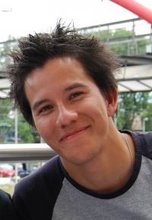Monday…the first day of the week equals for me coming to the office around 08.00h, checking my emails, eating the breakfast I got from my landlord, drinking my coffee and going through the weekly outlook for my Public Information work.
I am leaving the office about 17.30h. I hop into the taxi-be (mini-van), get out at my favourite sandwich place to grab something to eat.
At 20.00h Thomas picks me up with his new jeep and we go to the play football for 2 hours, which costs me 5000Ariary (2 Euros).
Back home, I read a little bit in my Economist before falling asleep.
More than 70 percent of the population in
Tuesday…at least once per week we go for having a nice lunch break at a restaurant up the hill. The menu leaves you with many choices….salad, fish, pasta, fresh juice, sandwiches…I am going for my usual “mango juice + omelette + steak with fries + yoghurt” package, which does not make the afternoon work shift easier….but well. After work I go out to meet some friends to have a drink together downtown or I just chill in our living room watching a movie.
Some 50 percent of children under three years of age in Madagascar suffer retarded growth due to a chronically inadequate diet.
Wednesday…we are on the way to the Galaxy compound to have our monthly meeting with all communicators from the different UN agencies. We discuss the agenda for 2008, deciding which topics we will mainly focus on, while we have snacks and drinks.
In the afternoon I am heading to a printing company where we ordered 300 brochures, explaining and promoting the work of WFP.
After finishing work I am at ACSA, a private sports club for the rich and posh, playing squash in the only court in the whole country of
Over the past 35 years, at least 46 natural disasters, including cyclones, drought, epidemics, floods, famines and locust infestations, have been reported, affecting more than 11 million people altogether in Madgascar.
Thursday…it is getting close to the weekend. Today we are attending a press conference from UNICEF in the noble Hotel Colbert, where the colleagues from the Found for Children explain their strategy to improve the lives of the children in
Chronic food insecurity affects 65 percent of the Malagasy population, with an eight percent increase during the lean season.
Friday…the last working day of the week goes by quickly, because we just have to work until 14.00h. So in the afternoon I visit my favourite chicken-BBQ place, trying not to eat too much, because at 17.00h I grapple with my buddies from Jiu-Jitsu. After the intense workout I am resting at home, before going out to have dinner with friends in one of the many good restaurants in the neighbourhood of Isoraka. Finishing with the mandatory Mousse au Chocolat we leave the restaurant and we head to Mojo Bar, where you will meet 95% of the expatriate community of Tana.
Saturday…sore from the Jiu-Jitsu workout, I decide to have a massage at Homeopharma (1 hour for 2 Euros) and a milkshake and cookies in “The Cookie Shop”. In the late afternoon I meet Stephanie in the Hilton Hotel where we play tennis and take a dive into the swimming pool.
Madagascar is a low human development country, ranked 143 out of 177 countries on the UNDP Human Development Index from 2007/08.
Sunday…I sleep until the kids from our landlord start playing around with their toys in front of my room. I spend lazy quality time in my apartment before going to either the Hash or playing Frisbee. In the late afternoon we meet up at “Sakamanga”, the only place in Tana with a cinema-like atmosphere, showing its Sunday movie. We might stay on to have dinner afterwards, before we head home to get ready for another week in
Life expectancy at birth in
Even though this week never really happened like this, it is very much possible. Life in
The opportunities and means I have to my disposal could easily make me forget where I am…so it is good that I keep on reminding myself where I am and why I am here.
It is very interesting for me to figure out how I deal with those harsh contrasts

